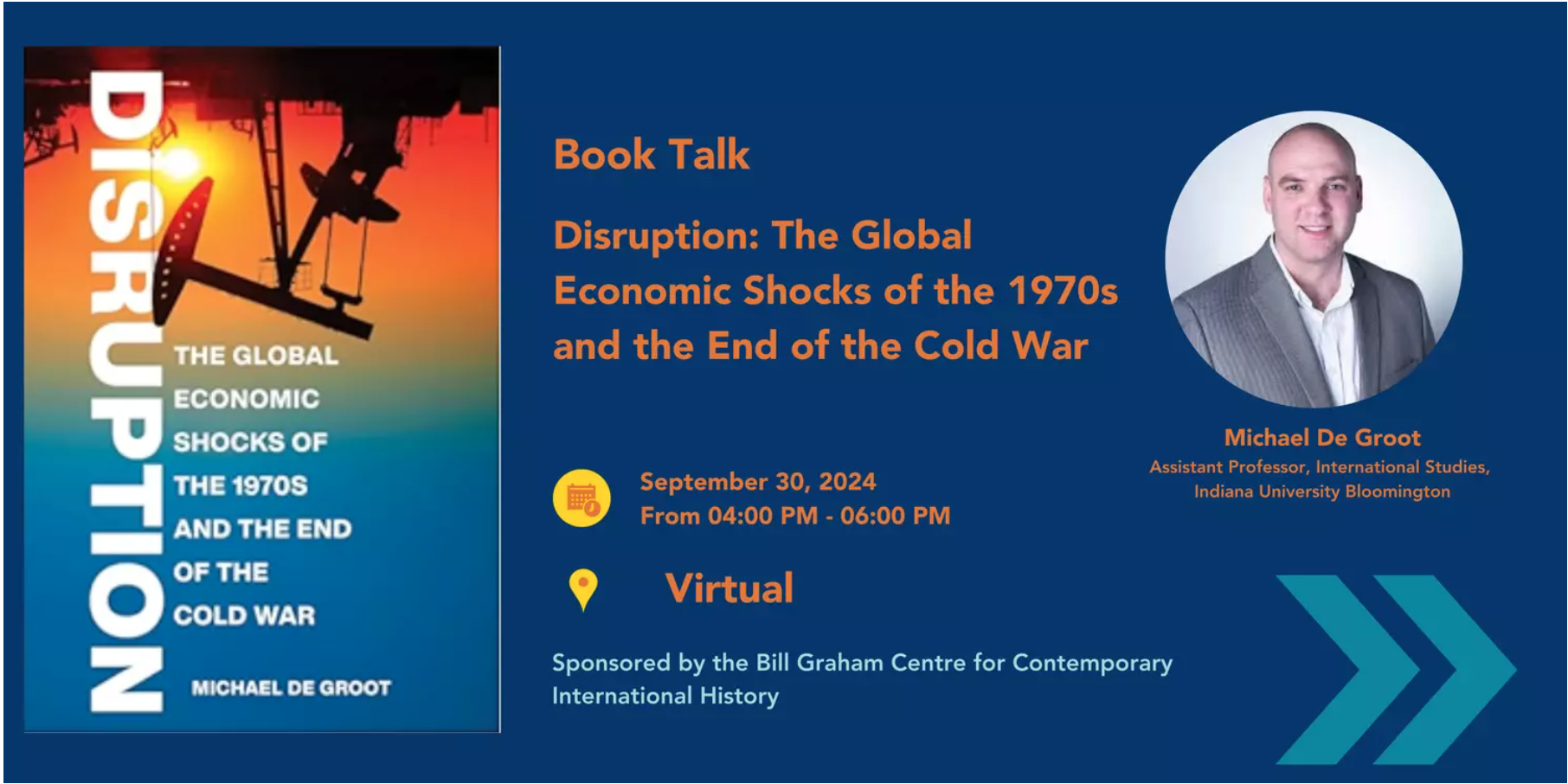Virtual Book Talk
Disruption by Michael De Groot
Sponsored by the Bill Graham Centre
Date: Monday, September 30, 2024
Time: 4 pm-6 pm, EST
Cost: Free
Location: Online via Zoom
In Disruption, Michael De Groot argues that the global economic upheaval of the 1970s was decisive in ending the Cold War.
Both the West and the Soviet bloc struggled with the slowdown of economic growth; chaos in the international monetary system; inflation; shocks in the commodities markets; and the emergence of offshore financial markets. The superpowers had previously disseminated resources to their allies to enhance their own national security, but the disappearance of postwar conditions during the 1970s forced Washington and Moscow to choose between promoting their own economic interests and supporting their partners in Europe and Asia.
De Groot shows that new unexpected macroeconomic imbalances in global capitalism sustained the West during the following decade. Rather than a creditor nation and net exporter, as it had been during the postwar period, the United States became a net importer of capital and goods during the 1980s that helped fund public spending, stimulated economic activity, and lubricated the private sector. The United States could now live beyond its means and continue waging the Cold War, and its allies benefited from access to the booming US market and the strengthened US military umbrella. As Disruption demonstrates, a new symbiotic economic architecture powered the West, but the Eastern European regimes increasingly became a burden to the Soviet Union. They were drowning in debt, and the Kremlin no longer had the resources to rescue them.
About the Author
Michael De Groot is an assistant professor of international studies in the Hamilton Lugar School of Global and International Studies at Indiana University Bloomington. His research focuses on the international, diplomatic and economic history of the Cold War, and the conflict’s enduring influence in world politics.
Before coming to Indiana University, he served as a postdoctoral fellow at the University of Pennsylvania’s Perry World House and as a Henry A. Kissinger Predoctoral Fellow with the Jackson Institute for Global Affairs and International Security Studies at Yale University. He received a Ph.D. in history from the University of Virginia and a B.A. in history from Stanford University.

